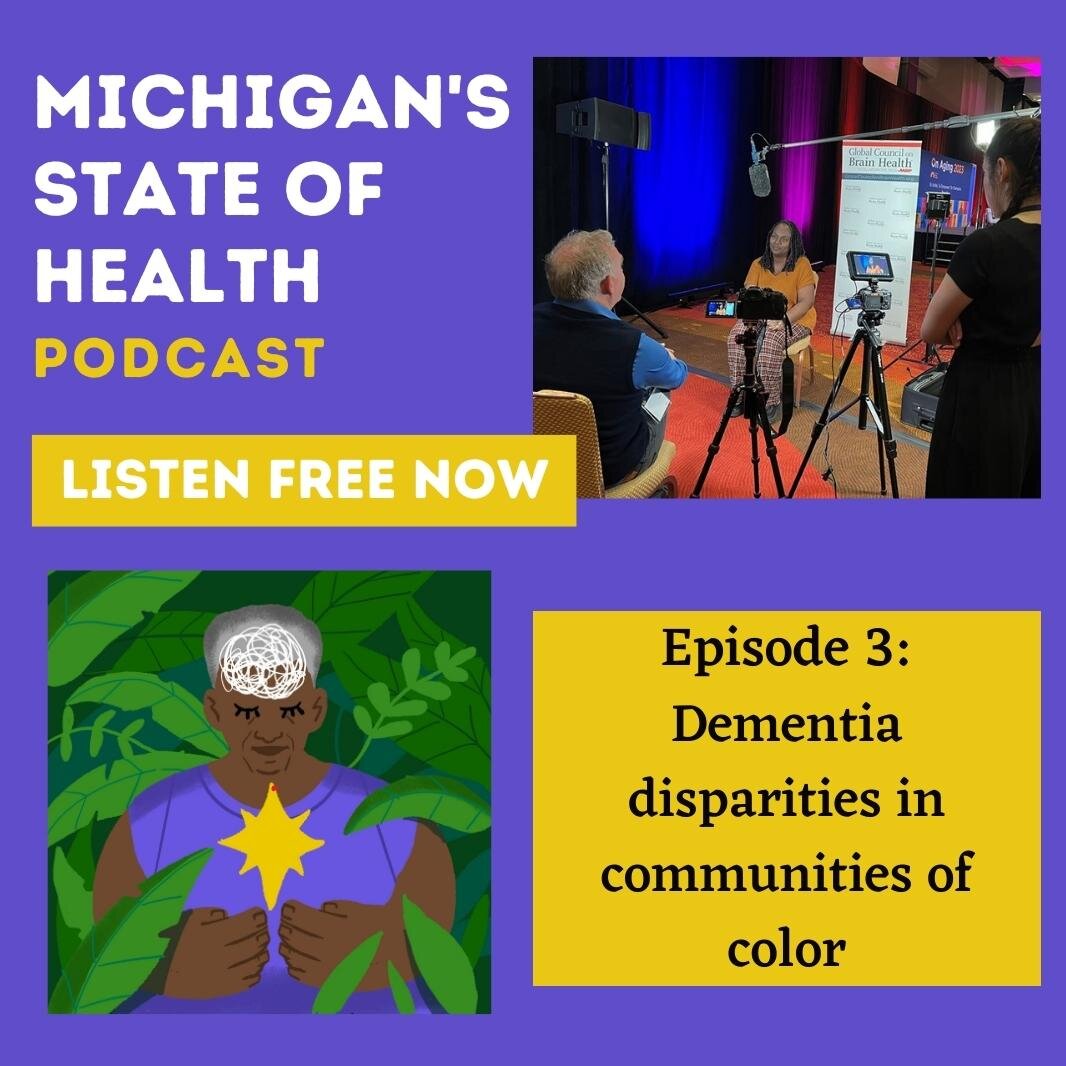PODCAST: Dementia disparities in communities of color
Dementia is challenging for everyone, but it takes a particularly heavy toll in communities of color. Here's how people living with dementia, researchers, and activists are working to change that in Michigan.

Dementia is challenging for everyone, but it takes a particularly heavy toll in communities of color. According to the Alzheimer’s Association, older Black Americans are about twice as likely – and older Hispanic Americans about one and a half times as likely – to have dementia as their white counterparts. Unfortunately, there’s not enough information on why this happens because dementia research has historically been disproportionately focused on white people. But a number of factors, including people’s educational levels, employment, income, and the neighborhoods they live in, contribute significantly to their stress levels, and as a result their brain health.
Numerous leaders in Michigan are working to better understand the differences in how people of color experience dementia – and to address the inequities that contribute to that experience. As we continue our second season of Michigan’s State of Health, we’ll introduce you to people living with dementia who have experienced those inequities firsthand, as well as the researchers, activists, and health care professionals who are working to make dementia care more equitable and culturally competent. Listen to the episode in the widget below.
Michigan’s State of Health is a spinoff of the State of Health series of feature stories, which you can read here. Michigan’s State of Health is produced by Issue Media Group and made possible through the support of the Michigan Health Endowment Fund.









